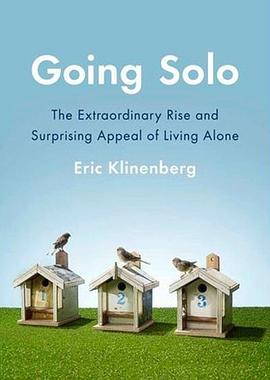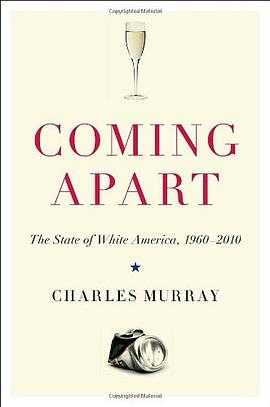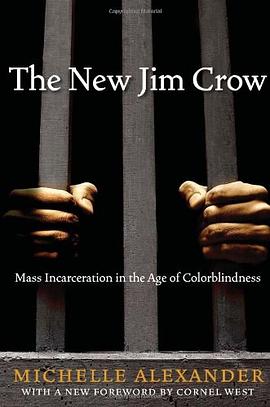

具體描述
A revelatory examination of the most significant demographic shift since the Baby Boom—the sharp increase in the number of people who live alone—that offers surprising insights on the benefits of this epochal change
In 1950, only 22 percent of American adults were single. Today, more than 50 percent of American adults are single, and 31 million—roughly one out of every seven adults—live alone. People who live alone make up 28 percent of all U.S. households, which makes them more common than any other domestic unit, including the nuclear family. In GOING SOLO, renowned sociologist and author Eric Klinenberg proves that these numbers are more than just a passing trend. They are, in fact, evidence of the biggest demographic shift since the Baby Boom: we are learning to go solo, and crafting new ways of living in the process.
Klinenberg explores the dramatic rise of solo living, and examines the seismic impact it’s having on our culture, business, and politics. Though conventional wisdom tells us that living by oneself leads to loneliness and isolation, Klinenberg shows that most solo dwellers are deeply engaged in social and civic life. In fact, compared with their married counterparts, they are more likely to eat out and exercise, go to art and music classes, attend public events and lectures, and volunteer. There’s even evidence that people who live alone enjoy better mental health than unmarried people who live with others and have more environmentally sustainable lifestyles than families, since they favor urban apartments over large suburban homes. Drawing on over three hundred in-depth interviews with men and women of all ages and every class, Klinenberg reaches a startling conclusion: in a world of ubiquitous media and hyperconnectivity, this way of life can help us discover ourselves and appreciate the pleasure of good company.
With eye-opening statistics, original data, and vivid portraits of people who go solo, Klinenberg upends conventional wisdom to deliver the definitive take on how the rise of living alone is transforming the American experience. GOING SOLO is a powerful and necessary assessment of an unprecedented social change.
著者簡介
Eric Klinenberg is a professor of sociology at New York University and the editor of the journal Public Culture. His first book, Heat Wave, won several scholarly and literary prizes and was declared a "Favorite Book" by the Chicago Tribune. His research has been heralded in The New Yorker and on CNN and NPR, and his stories have appeared in The New York Times Magazine, Rolling Stone, and on This American Life.
圖書目錄
讀後感
恋爱总比婚姻更令人愉快,恰似小说总比历史更令人愉快。 很多人认为“若婚姻质量下降,就没必要结婚”,这个观点看似挺合理,但仔细想想,其实是一个无解的题。持有这个观点的女性居多,因为中国社会普遍共识是男性负责家庭开支大头,结婚后势必要更多倾斜于家庭,“生活质量降...
評分收集了很多人的主张和意见,但每一章的主题很水,作者好像是很牛逼的人,但实际没有说什么,好像怕得罪什么似的,隐约想说又不敢说,最后东平西凑才熬出一锅白粥。 或者说人类社会无论何时,都是因为围绕共同生活而非独自生活的想法而建立的(无论资源紧缺或充裕)人类的确有社...
評分忘了是看新闻的时候哪里一句话提到了这本书,宣扬着单身时代的到来。因为我本人正处于这样一个阶段,自然有兴趣看看。 当然本书并不完全适合作为个人的生活指导,这本书是一本研究论文,而且仅限于美国。开头写了一堆各种历史理论哲学,中间一部分调查故事稍微有趣,涉及的话题...
評分 評分『一個人生活,已成為時尚』,這本書的主軸就是這段話了。 近幾年,討論『一個人的生活』的書愈來愈多,光是我讀過的,諸如~【敗犬的遠吠】、【一個人的老後】、【一個人的經濟】、【一個人的朝聖】、【一個人的旅行】、【寂寞,於是人生有更多可能】,還有這本【獨居時代】。...
用戶評價
當認真考慮瞭“我為什麼愛晚睡”後,個人空間和自我認知這樣的問題隨之而來——我可以堂而皇之地晚睡,卻很難自我信服地說going solo。這本書的獨特在於,它不是心靈雞湯或警示危言,而是基於社會調查去關注這樣一個問題:獨居興起的因素集閤有哪些?其生存狀況如何?更進一步,作者試圖去理解“在大量獨居者的社會中生活究竟意味著什麼”?實際的調查和訪談能夠讓讀者謹慎對待所謂暢銷榜上的那些數據。
评分太好看啦!這書的research method部分要是放序言的話肯定讀者會更多一些。講世界範圍內living alone的趨勢和不同,講solo的男女老少富人窮人,講solo生活的人相關的人的生活。特彆有趣,彆被intro部分嚇跑喲。不過不太理解這為什麼是學校Sociology 101的必讀書目。缺陷作者說得也很明白,就是沒講在suburban的人的生活之類的。而且真的對我這樣的在考慮going solo的讀者有很高的參考價值。
评分失望
评分對習慣讀小說的我來說這本書簡直是一種摺磨……生詞太多且偏書麵語(?),直到看完也沒有齣現我以為的那個理由,也許太小眾,也許是國情不同。
评分太好看啦!這書的research method部分要是放序言的話肯定讀者會更多一些。講世界範圍內living alone的趨勢和不同,講solo的男女老少富人窮人,講solo生活的人相關的人的生活。特彆有趣,彆被intro部分嚇跑喲。不過不太理解這為什麼是學校Sociology 101的必讀書目。缺陷作者說得也很明白,就是沒講在suburban的人的生活之類的。而且真的對我這樣的在考慮going solo的讀者有很高的參考價值。
相關圖書
本站所有內容均為互聯網搜索引擎提供的公開搜索信息,本站不存儲任何數據與內容,任何內容與數據均與本站無關,如有需要請聯繫相關搜索引擎包括但不限於百度,google,bing,sogou 等
© 2025 book.quotespace.org All Rights Reserved. 小美書屋 版权所有




















